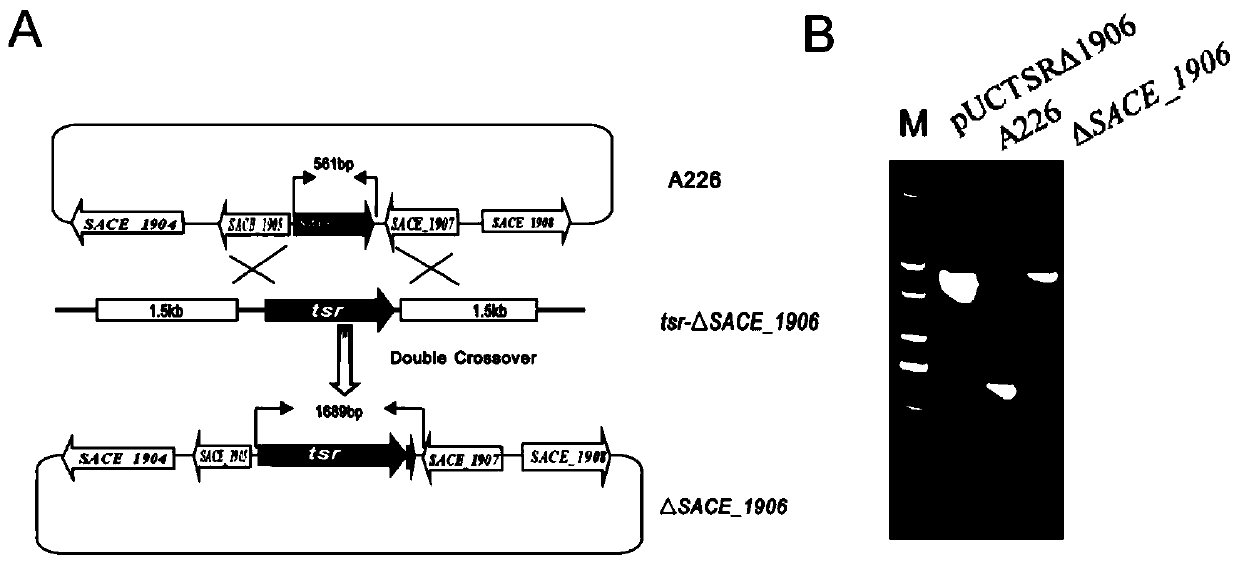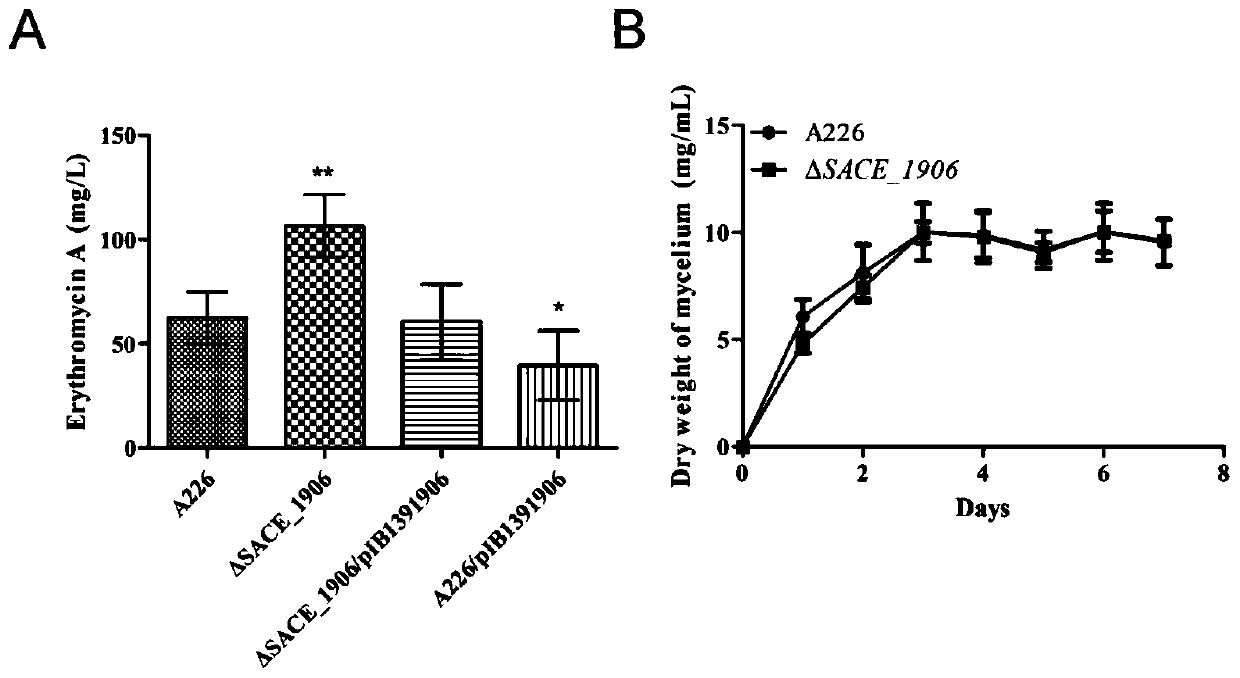Method for increasing yield of erythromycin through saccharopolyspora erythraea SACE_1906 gene pathway
A technology of Saccharopolyspora erythromycetes and erythromycin, which is applied in the field of genetic engineering and can solve the problem of the absence of regulatory genes in synthetic gene clusters
- Summary
- Abstract
- Description
- Claims
- Application Information
AI Technical Summary
Problems solved by technology
Method used
Image
Examples
Embodiment
[0031] 1 Materials and methods:
[0032] 1.1 Strains, plasmids and growth conditions
[0033] The bacterial strains and plasmids used in the examples are shown in Table 1. Escherichia coli was cultured in liquid LB medium at 37°C or LB solid plate with no resistance or corresponding resistance added with 1.25% agar. The erythromycin-producing bacterium Erythropolyspora saccharopolyspora and its engineered strains were cultured on tryptone soybean broth (TSB) medium at 30°C or R3M solid plates containing 2.2% agar without resistance or corresponding resistance.
[0034] 1.2 Materials, DNA manipulation and sequencing
[0035] PEG3350, lysozyme, TES, casamino acids, thiostrepton, and apramycin were purchased from Sigma. TSB, yeast extract, and peptone were purchased from Oxoid. Glycine, agar powder, sodium chloride, and other biological reagents were purchased from reagent companies. The general operating techniques for Escherichia coli and Saccharopolyspora red mold follow ...
PUM
 Login to View More
Login to View More Abstract
Description
Claims
Application Information
 Login to View More
Login to View More - R&D
- Intellectual Property
- Life Sciences
- Materials
- Tech Scout
- Unparalleled Data Quality
- Higher Quality Content
- 60% Fewer Hallucinations
Browse by: Latest US Patents, China's latest patents, Technical Efficacy Thesaurus, Application Domain, Technology Topic, Popular Technical Reports.
© 2025 PatSnap. All rights reserved.Legal|Privacy policy|Modern Slavery Act Transparency Statement|Sitemap|About US| Contact US: help@patsnap.com



